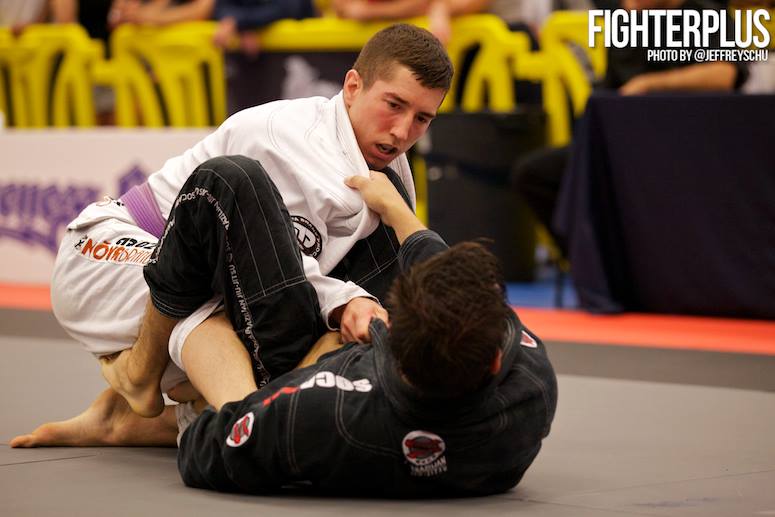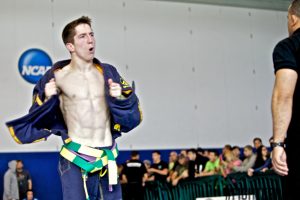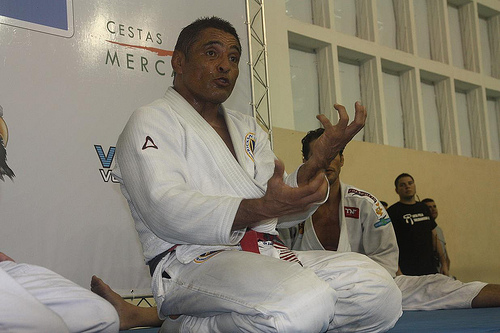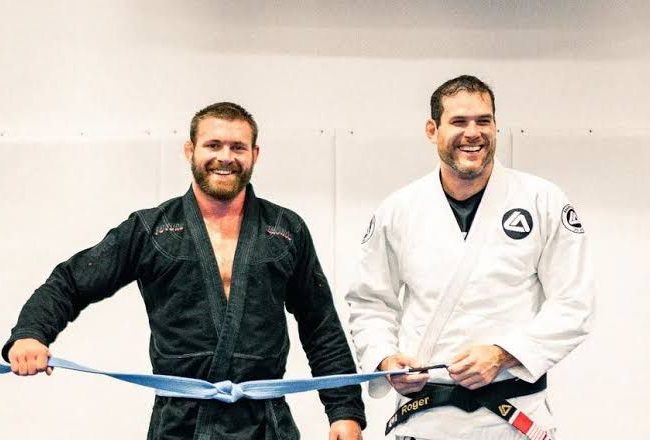
Ryan at the 2014 IBJJF Boston Summer Open. Photo: FighterPlus/Jeffrey Chu
Over the weekend, the 2014 IBJJF Boston Summer Open was a day for competitors along the east coast to gather and test their skills against one another. One of the standouts who I met in Boston last year was Ryan Clay of Aldo Batista Club. The purple belt light-featherweight had one his division that time and accomplished the same feat on Saturday, Aug. 24 but with some added features.
Since there was no one in his light-feather division, he chose to step up to featherweight and challenge himself against those of that weight category. Despite weighing in 15 pounds under the rest of the athletes, he won four matches for the gold.
The first match was 4-2 points, the second match was 4-0 points and the third was 3-0 points. All three opponents were fresh as the bracket had some drop outs along the way. In the final he won the match 6-0.
This win is a serious one for an avid competitor but for Ryan, it isn’t his main priority. As an engineer working full-time in New Hampshire, the training sessions are limited compared to most other serious Jiu-Jitsu athletes. But he gets into the gym at least six times a week, helps out with other students at the academy in Nashua and spreads his training out well with his allotted time frames.

Ryan at the 2013 Abu Dhabi World Pro Trial. Photo: FighterPlus/Jeffrey Chu
Competition provides him a rush. He explains his reason for competing: “There are two reasons. The first would be because I know that in order to advance my Jiu-Jitsu to the highest levels I need to be measuring myself against other people. The second reason is when you’re competing the unpredictability and having it on the line is a rush. I never know what I’m going to do or what my opponent is going to do and that aspect of it scares the crap out of me and gets me excited being on the edge.”
After six years of training and wrestling before that, he has learned to manage his time on the mats. He explains, “I’ve been mixing gi and no-gi training since starting with Jiu-Jitsu. I train three hours a day every day after work. Weekends are free, which means I train both days or go to a tournament and compete. The most difficult part about training and maintaining a full-time professional career is that my training needs to be efficient. It is important for me to get the most out of each practice.”
As soon as tournaments come up in his schedule, the focus varies. “When preparing for competition, I try not to focus too much on any one position. This helps me adjust my strategy during a match in order to secure the victory. There’s a time and place for every technique in the arsenal, but knowing when to use each technique makes all the difference for me.”
Ryan has learned to manage his time on and off the mats. How do you prioritize? Let us know in the comments below.


